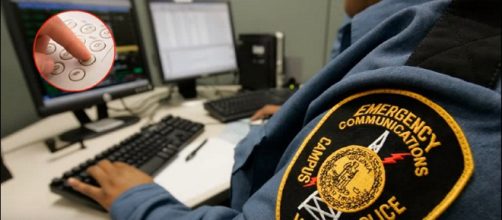The ninth annual report to the U.S. Congress concerning state tax collections and the allocation of those 911 emergency services fees and other charges found that several states were taking money from those taxes and funding unrelated projects, the Register reported.
The report was compiled and submitted by Federal Communications Commission (FCC), Chairman Ajit Pai in which Pai documented that at least $129 million of the money from the Emergency Telephone Users Surcharge 911 Tax was being spent on projects not connected to emergency services.
Unrelated project expenditures
The wrongful use by the states of the 911 taxes was from a report dated, December 29, 2017 and covered the period of January 1, 2016 through December 31, 2016. The surcharge tax is added to US citizens’ monthly telephone bills and those funds are allocated to support that state’s emergency call local services. In spite of this, those tax funds are being redirected to support other projects, which according to the report went above other state fiscal budgets. The FCC’s public safety division as well as Homeland Security found six states that were redirecting those taxes and those states were New Jersey, West Virginia, Illinois, Rhode Island, Illinois, and New Mexico.
46 states, including D.C., American Samoa, and the U.S. Virgin Islands did respond to this year’s data request. However, New York didn’t submit a report in response to the FCC or Homeland Security in regards to this year’s tax data collection, but according to the report, there was adequate public record evidence that does support a finding that New York did in fact, redirected 911 taxes for non-public safety uses.
When it comes to how the fees are collected, 27 states, the District of Columbia, and the U.S. Virgin Islands stated they collect those 911/E911 taxes at the state level while four other states conveyed that they collect the taxes at the local level, and 14 states collected fees at both the local and at the state level.
The total of 911 and E911 tax funds redirected by all of the jurisdictions that reported for the year 2016 was $128,909,169, or roughly five percent of total 911/E911 emergency tax fees collected. Seven U.S. states declined to hand over any data on how much they collected or of what they spend the money on, to the Federal Communications Commission. The FCC also found that there were massive discrepancies on what those states had spent on their emergency services, which is raising questions of possible misuse of tax payer money.
Cyber-security and audits
Whereas nearly every U.S. state collects 911/E911 taxes from in-state citizens, there were 20 states, D.C., American Samoa, and the United States Virgin Islands stated that they lack authorization to inspect 911 service providers to confirm the collected taxes accurately reflects the number of in-state citizens subscribers are being served by a 911 emergency services provider.
Of those states that have 911 audit authorizations, only five in 2016 conducted any emergency telephone users surcharge tax reviews.
When it comes to cyber-security preparedness, the report revealed that the Public Safety Answering Points (PSAPs) showed that 34 states, American Samoa, and the U.S. Virgin Islands had showed that none of them spent any 911 tax dollars on 911–related cyber-security procedures for the Public Safety Answering Points. Only 11 states and Washington D.C., said that they spent funds on cyber-security-related programs. The rest of the FCC report dealt with oversight and Auditing of the 911/E911 fees, descriptions of next generation of 911 services and expenditures, cyber-security expenditures, measuring the effective utilization of those 911/E911 taxes, and public comments on 2016 annual report.


